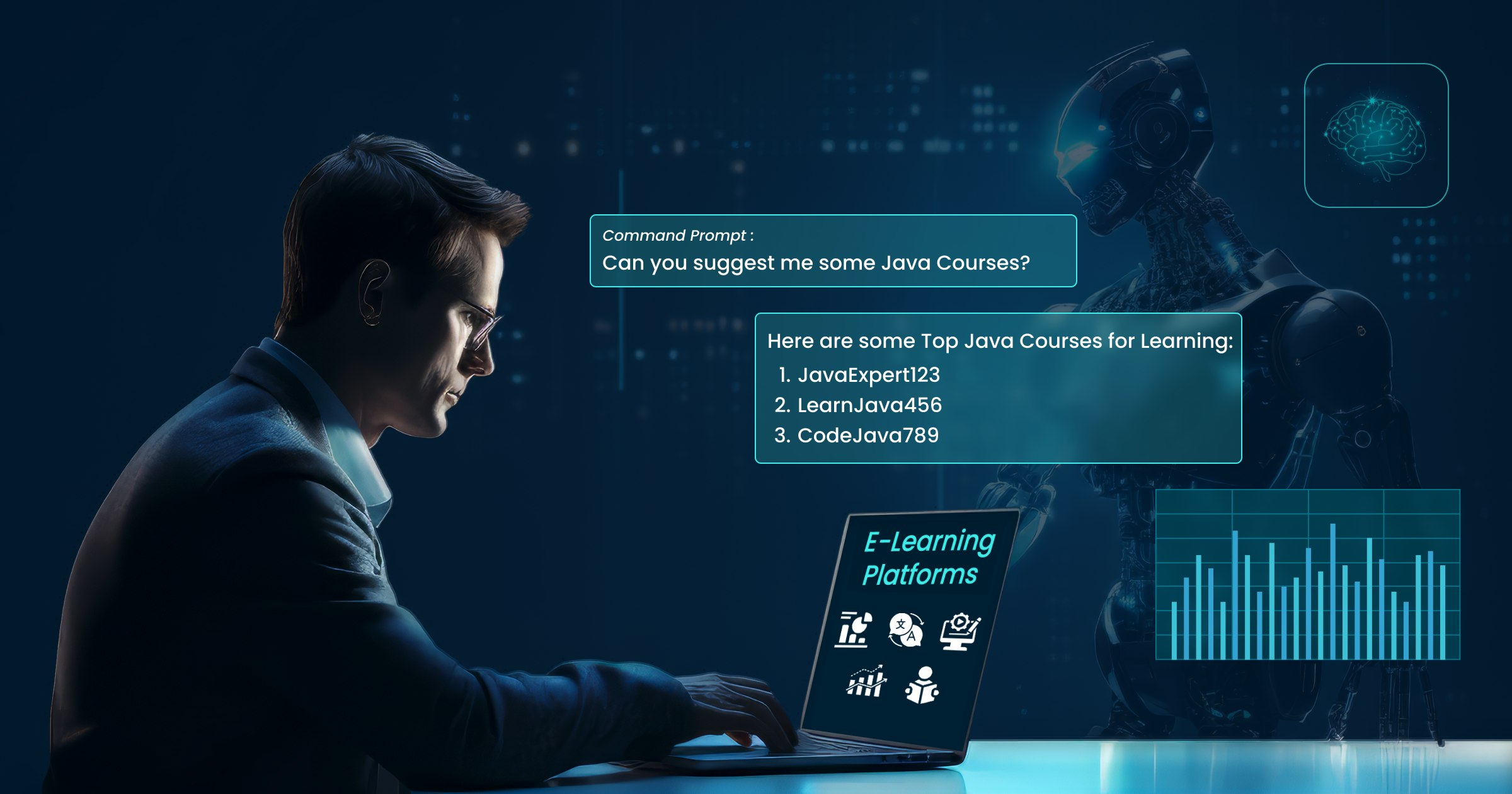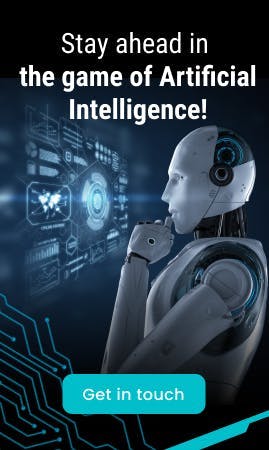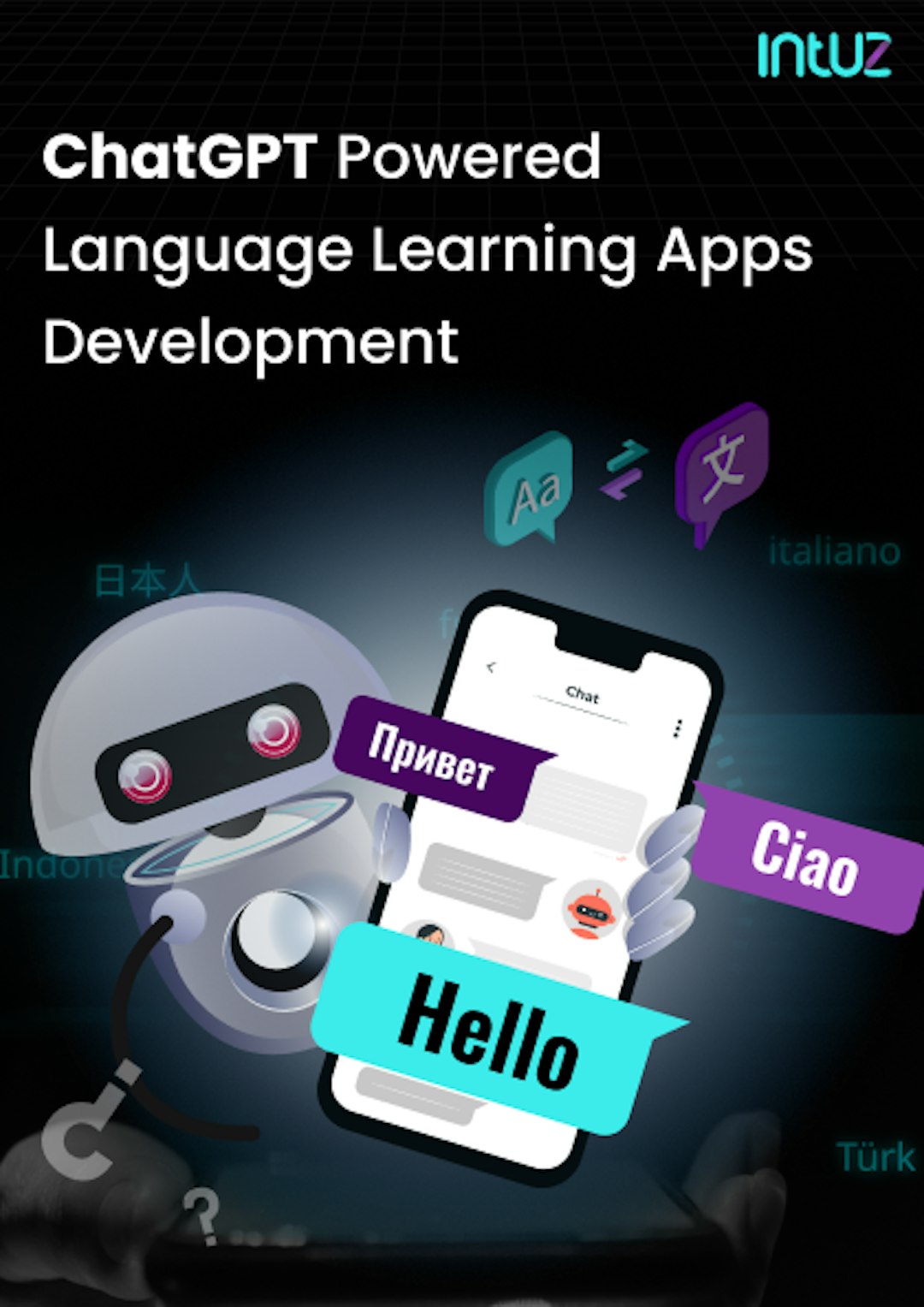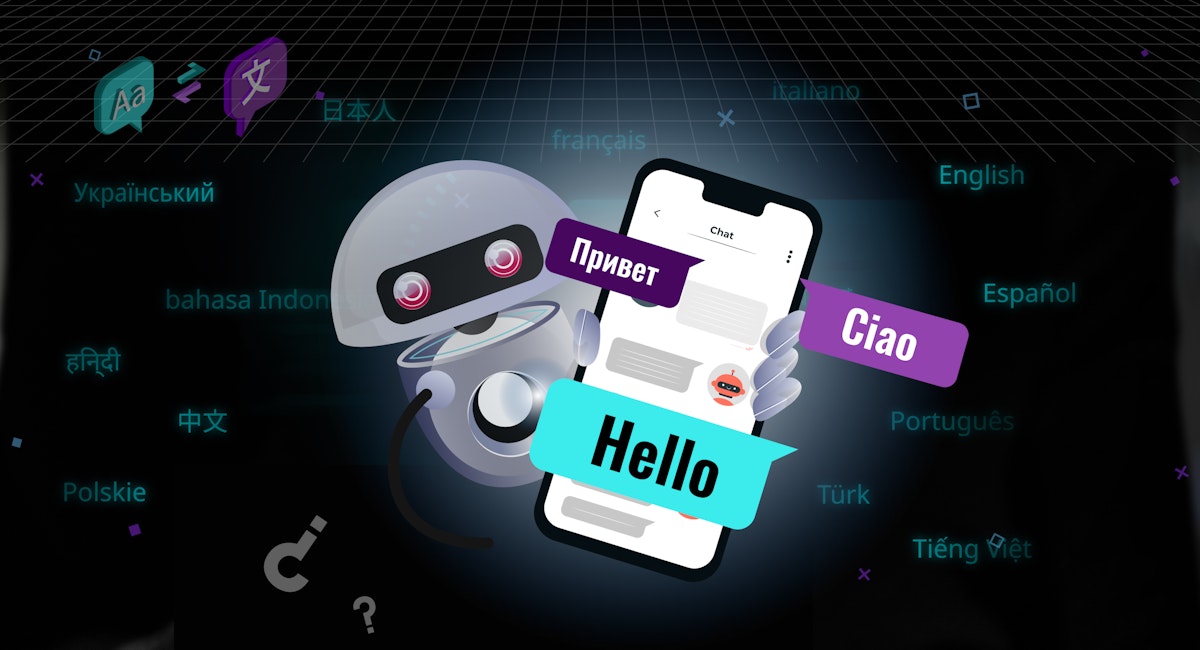Table of Content
Generative AI can customize the learning experience and process by delivering content suited for individual learning. By taking into account the individual’s pace, abilities, interests, and styles, it can tailor educational content and provide immediate feedback plus support.
eLearning has made education accessible, reaching out to millions of students across the globe. Generative AI in e-learning facilitates faster learning with task automation, generating quick summaries and customization, leading to better learning outcomes.
Let’s explore the overall impact of generative AI in e-learning.
Generative AI and eLearning | A Better Way to Learn
Generative AI is a specific form of artificial intelligence that generates new information when prompted. Where artificial intelligence is pre-trained to facilitate the tasks, generative learning uses machine learning, natural language processing, and other technologies to learn from existing data and deliver the output.
1. Better Content Creation
You can use generative AI tools to source any information required to understand the topic. Educators can use generative AI-based learning apps to create coursework, worksheets, and assignments for various subjects.
This will save them the time and research required to read through endless pages to find relevant information for creating content.
Discussion is integral to effective learning, and generative AI-based learning apps can help initiate intelligent deliberations. They can provide thought-provoking discussion prompts that inspire students to dive deeper into their subject matter.
Individuals can tailor these prompts to talk about specific topics and even start a debate with AI to improve their understanding. Through this, the AI program also learns and becomes better than before.
2. Personalized Learning Experiences
With generative AI, different types of learners can study according to their preferences, strengths, and weaknesses. Smart AI algorithms adapt to the individual’s learning preferences and style, ensuring they access the right content at the appropriate time.
In generative AI e-learning apps, the strategists embed features to maximize the learning potential. Students can leverage Gen AI to understand complex topics in simpler language. Gen AI-based platforms can pave the path for low-performing students and help them improve.
3. Virtual Mentors and Teachers
AI-based tutors and mentors can be available for the students 24/7 to answer all your questions and provide immediate feedback. The AI-based virtual mentors and assistants enhance the learning experience while making education accessible.
Moreover, taking into account a student’s learning style and preferences, virtual teachers can also identify areas of struggle. They can provide targeted guidance to the students, helping them overcome all the obstacles and achieve their educational goals.
This can help address inequity when it comes to out-of-classroom learning.
An eLearning app development company can integrate the generative AI platforms into their platforms to improve service delivery further.
4. Intelligent Learning Analytics
AI-based learning apps can also provide adaptive feedback. Using AI algorithms, these platforms track a student’s performance to create bespoke learning paths. They can recommend lessons, exercises, and topics to improve a student’s understanding.
Dedicated platforms are available that will analyze a student’s past performance, check for knowledge gaps, and provide personalized recommendations.
5. Language Learning & Translation
Learning a new language has never been easier than today. With Gen AI solutions, anyone can learn a new language with adaptive learning capabilities.
Existing language learning applications like Duolingo are already using AI to tailor the content according to the user’s understanding and capabilities. With generative AI, we can go one step further in curating interactive lessons and practice exercises for skill enhancement.
Moreover, generative AI tools can provide real-time translation to improve accessibility. AI’s natural language processing capabilities can quickly and accurately understand a user’s prompt response in the language they wish to learn.
As a result, Gen AI in e-learning languages removes all the barriers to ease the learning process.
6. Accessibility and Inclusion
Generative AI presents an exciting opportunity for all types of learners to become a part of the learning community. Foreign students can use it to understand the native language, correct spelling, and pronunciation, and get their written work checked.
Moreover, teachers can also use AI to create learning material according to their student’s capabilities. In schools, teachers can facilitate customized learning and let every student participate in the learning process.
The same applies to higher education and even to corporate training. AI-based advanced technologies like augmented reality can also become a part of training, and generative AI can be used to tailor the study material manifesting into experiential learning.
Generative AI-based learning systems have several advantages in education. However, it's crucial to understand the ethical considerations of using Gen AI for learning.
How can Generative AI Address Traditional Learning Challenges?
Before AI, traditional learning has groomed some of the most intelligent people in the world. However, these individuals and their instructors had to weather several challenges in the way of learning and improving.
Some of the challenges in traditional learning are;
A. More focused on Memorization
Traditional learning focuses on memorizing the facts, figures, etc, rather than fostering critical and analytical thinking.
B. Lack of Personalization
Assignments, homework, and coursework in traditional learning are uniformly designed for everyone. Hence, every student, whether in school, college, or in the corporate world, is expected to learn with the same material and deliver results.
C. Non-inclusivity
Since everyone has a different intellectual level, their learning process and speed can differ. Hence, some students take minutes to understand a concept, while others take more time, creating a gap between them.
Generative AI can address these challenges in the following ways;
1. Adaptive Learning Journeys
Generative AI does not only provide customized content for learning but also creates personalized learning journeys. Evaluating a student’s strengths and weaknesses can create adaptive learning pathways to build critical thinking and problem-solving skills.
2. Self-paced Learning
Generative AI helps every student learn at their own pace, with personalized learning material and AI-generated summaries. AI programs adjust learning pace according to the individual’s understanding ensuring mastery of one topic before moving on to the next.
3. Bespoke Curriculum and Self-Assessment
With Gen AI, students and instructors plug the knowledge gaps by offering specific learning through targeted resources. Teachers can analyze a student’s performance and use AI to build personalized feedback reports giving detailed reviews with reference to the goals.
So, it allows educators and instructors to tailor educational content and assessments according to a student’s capabilities. A study conducted by the U.S. Department of Education in 2023 found that AI can improve student’s thinking, leading to an increased fluency in generating new ideas.
Future Possibilities of Generative AI in e-Learning
Generative AI will have an impact on learning in the years to come. Where the teachers and instructors find new opportunities to leverage emerging technologies, the students will continue to find AI enlightening.
A. Comprehensive Tools
Today, we have separate tools for generating text, images, and videos. But going forward, we can expect to use a single tool to generate all three about a subject.
Gen AI will create multi-modal content that includes text plus 3D models, interactive simulations, and immersive virtual experiences tailored to the student’s needs.
So imagine a student asking an AI program about the digestive system, and the tool responds with text, images, and videos to help the students understand all about it.
B. Predictive Analytics in Education
In addition to this, predictive analytics will find its way into a student’s learning graph and recommend changes to improve their learning skills.
C. Learning Throughout Life
AI will allow people to educate themselves with personalized pathways created to learn and grow throughout their lives. As the individual's age progresses, the lessons and study material will continue to evolve allowing them to adapt with time and technology.
E-Learning & Education App Development Solution
Explore NowConclusion
Generative AI has already started a learning revolution. Its growing influence and continuous highlighting of the shortcomings of traditional learning are paving the way for mass adoption. If you are in the education industry, it's the time to think about adopting generative AI in e-learning and building a better learning culture for your students and customers
Integrate Gen AI into your eLearning apps with Intuz. Having built several Gen AI-based learning apps, we can help you deliver better solutions to your end-users and become the industry’s trendsetter.






